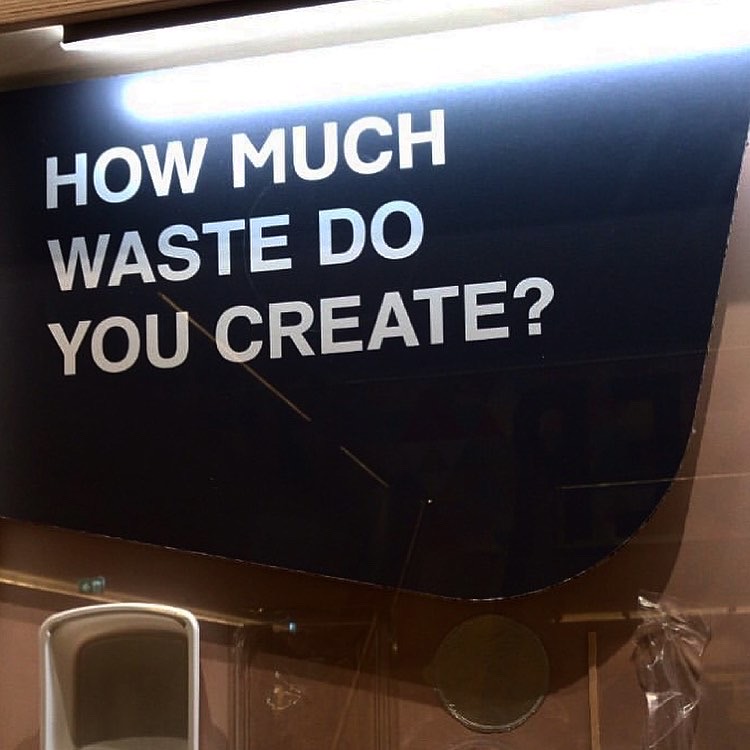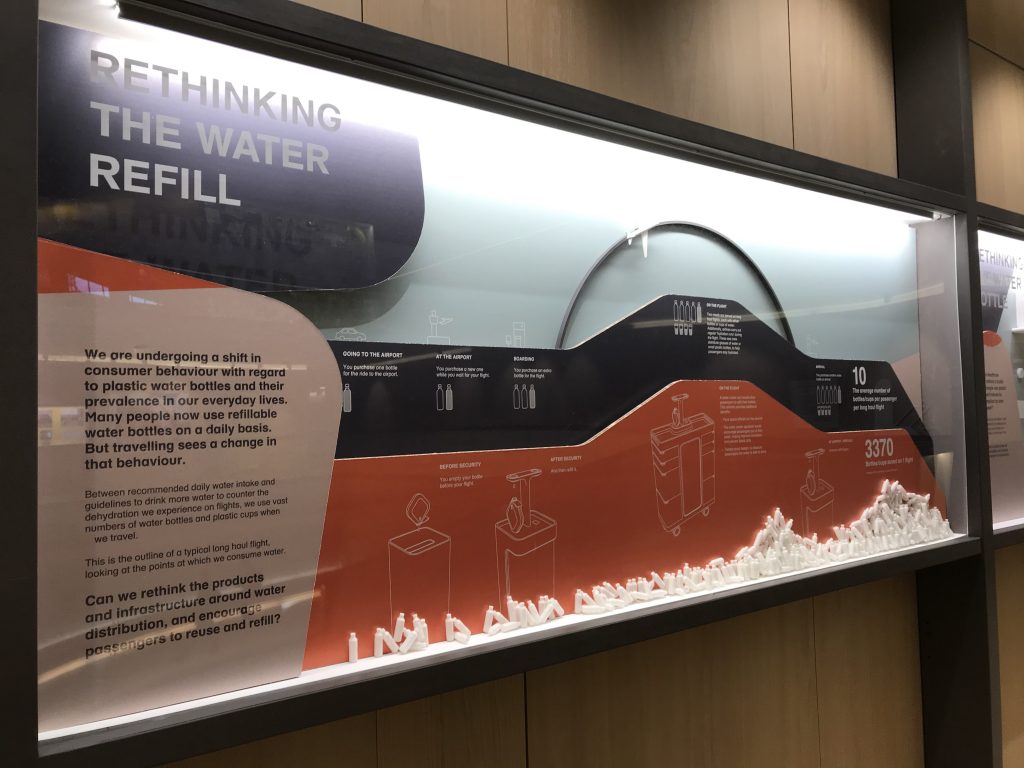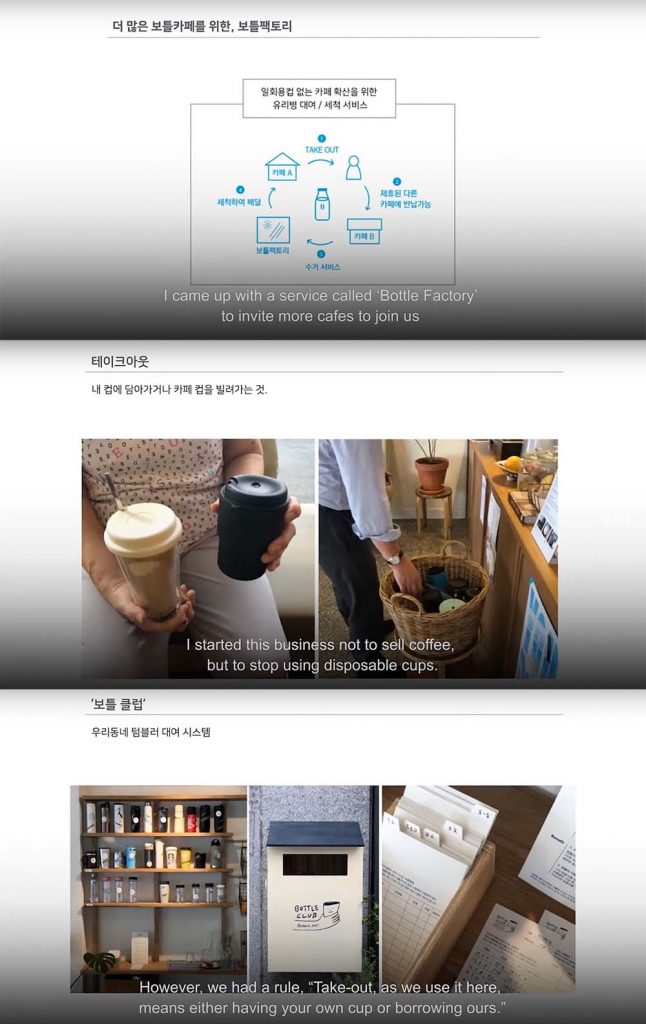“Designer is a problem revealer.” Dr. Dimeji Onafuwa
#1. Redesigning In-flight Catering Packaging
Design Museum, London, 2019 PriestmanGoode
I stumbled across this exhibition back in 2019 when I visited Design Museum in London. I was impressed by the amount of research and the final products created to address and tackle the in-flight waste issue through exploring sustainable materials. The overall outcome of this project is not only visually pleasing but also admirably viable. However, I couldn’t help but wonder how practical this solution is to the travel industry. Has this project been considered to be applied to the industry? If not, what were the barriers?
#2. Bottle Factory Project by Dawoon Chung
IDCC 2020(International Design Culture Conference), hosted by Department of Design at Seoul National University https://youtu.be/F64SEVOWJKk
Bottle Factory is a zero-waste cafe/service based in Seoul. They started with a basic concept to run a cafe without using any disposable products. Then, they established a system to help people return the reusable cups more conveniently throughout the trials and errors and started branching out into other sustainable campaigns involving bigger crowds and other businesses. Now they hold an annual event called Your Bottle Week with other ally cafes and local grocery stores to be part of the movement. In addition, they designed an app to help and engage the public to understand their impacts on the environment through their purchases and a reusable coffee cup that will be part of a bigger picture of the cup-sharing service.
#3. Waste Age: What can design do?
Design Museum, London, 2021 Link
Waste Age is another exhibition that is currently happening at Design Museum. Even though I can’t physically experience it, the curation and intentions seem very much aligned with my research questions. The exhibition centres around the critical question, “Is design the answer to leaving our throwaway culture behind?” Most designers are now aware that “The design industry helped to create a throwaway world.” Rethinking our relationship to daily consumptions for everyday things is something I see my practice heading towards. I’m trying my best to practice zero waste living in my personal life, such as; shopping groceries without packaging, buying long-lasting products instead of cheap short-sighted items, making more food from scratch, making my own toothpaste, etc. However, I have also struggled to maintain this lifestyle due to the lack of time and financial stability since I started my grad studies in Canada. This recent life change makes me wonder, what practical resources can I create and offer to help design communities or the general public engage with sustainable living who haven’t prioritized it? What kinds of circular economies or SLOC scenarios can support the personal level of low-impact living for individuals?


